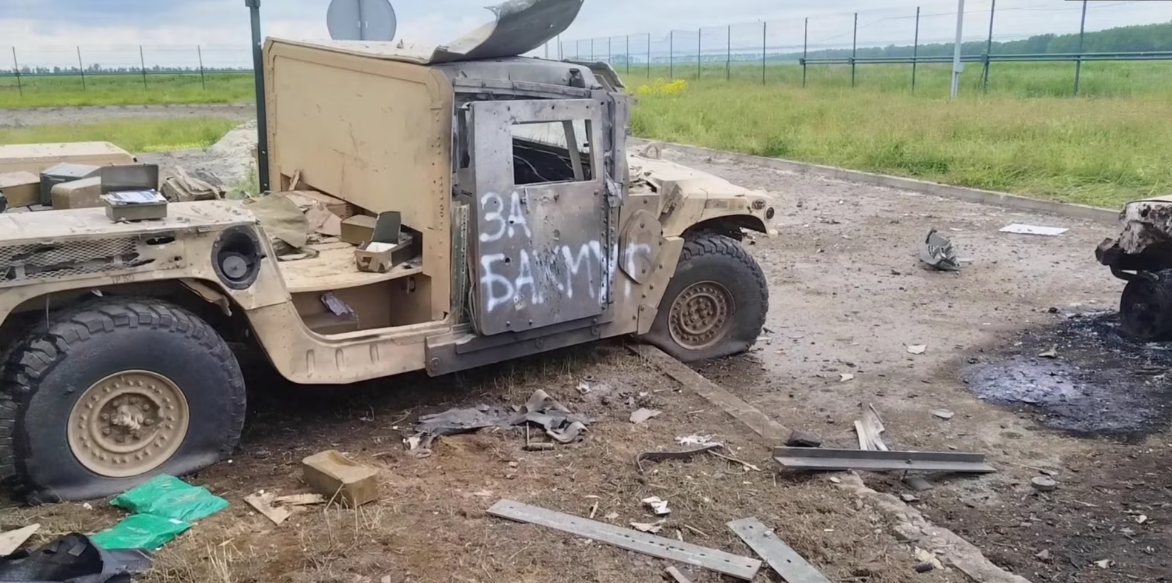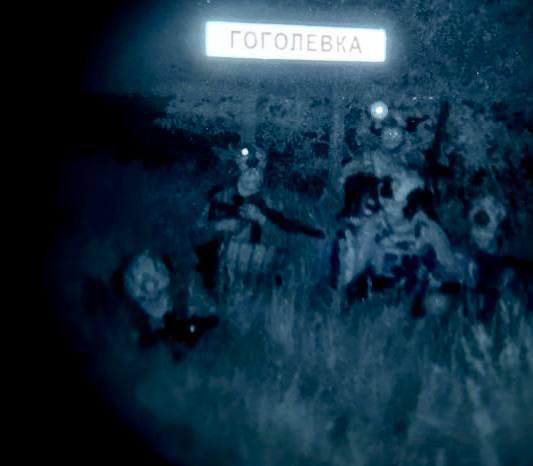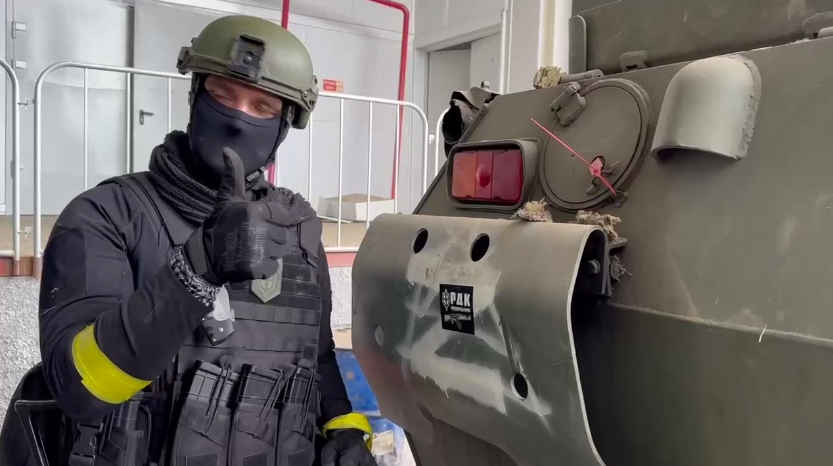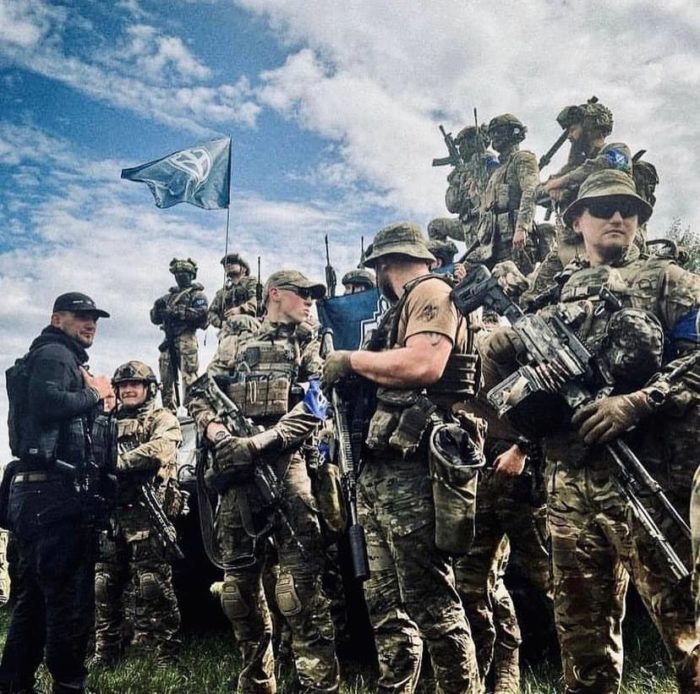On 22 May, Putin-opposing Russians raided the neighboring to Ukraine regions of Belgorod Oblast, clashing with Russian government forces and asserting control over border settlements. Russian authorities labeled the raiders a “Ukrainian sabotage group” and imposed a counter-terrorist operation regime in the region, officially ending on the next day, 23 May. Beneficially for Ukraine, following the raid, Russia relocated troops to the region, drawing away forces from the front, where Ukraine is planning on launching a counteroffensive. Taking responsibility for the raid was the Russian Volunteer Corps (RDK) and Legion of Free Russia, two battalions of pro-Ukrainian Russians fighting alongside Ukraine.
We talked to a leader of the Russian Volunteer Corps to understand what the RDK's goal is and found out how many "passionary" Russians are ready to take up arms, the revolution that they hope will change Russia, whether they cooperate with the Russian liberal opposition, and how they respond to accusations of neo-Nazism among their ranks.
Alya Shandra: Good afternoon, Aleksandr. Thank you for joining us today. Could you introduce yourself?
Aleksandr Fortuna: My name is Aleksandr Fortuna. I am the head of the Russian Volunteer Corps Headquarters.
Alya Shandra: Everyone is aware of your last operation in the Belgorod Oblast. Have you met your goals and achieved the planned results?
Aleksandr Fortuna: Yes, we have met all the goals that we set for ourselves. The first stage of the operation is completely closed for us. But the operation is not over, it is still ongoing. The second stage of the operation will be in the near future.
Alya Shandra: Can you share some details about your upcoming plans?
Aleksandr Fortuna: Not yet.
Belgorod oblast raid over, struggle continues, Russian fighters say at press briefing
Alya Shandra: There was a lot of talk about the use of Western equipment in the last offensive on the Belgorod region. Can you comment on this? [RDK leader Denis Nikitin told Financial Times that two M1224 MaxxPro armored personnel carriers and several Humvee vehicles were used in the attack - Ed].
Aleksandr Fortuna: The Russian Volunteer Corps uses only trophy equipment; we do not use Western equipment. [Ukrainian intelligence representative Andriy Cherniak told RFE/RL that RDK was using the western equipment that Ukraine lost near Bakhmut, was captured by the Russian Army, and again captured by the RDK - Ed].

Alya Shandra:
Can you tell us a little about the role of the Ukrainian side in this operation? Did Ukrainian soldiers participate? How do they participate in your operations?
Aleksandr Fortuna: If the operation is carried out on the territory of the Russian Federation, the Ukrainian side does not participate in these operations militarily. They help us medically, they help us with information, and they help us humanitarian-wise. But from a military point of view, they do not help us. If the Ukrainian military carries out the operation, we participate with different Russian Federation units. This is a standard military story, nothing special about it.
Alya Shandra: And what about the planning? Was there any preparation with the participation of the Ukrainian side?
Aleksandr Fortuna: The operation was planned by the forces of the corps.
Alya Shandra: So there was no participation at all? Everything was done on your own?
Aleksandr Fortuna: Yes.
Alya Shandra: I know that you are addressing the residents of Belgorod, that is, the Russians. Do you find a response from them? Do they join your movement?
Aleksandr Fortuna: After the first stage of the operation, hundreds of applications came to us daily from residents of Belgorod, Bryansk, Kursk, Voronezh. From people who are ready to join. These people are ready to get up right now, go, join us and do something. They are very diverse, there are young people, older, seniors, men, and women, a lot.
Alya Shandra: And if we talk about the wider layers of Russian society, how confident are you in their support?
Aleksandr Fortuna: We are not sure yet. It seems to me that all the passionaries remaining in Russia have already contacted us and in one way or another, had some kind of communication with us.
I think that for a larger influx of people or at least opinions, it is necessary for a pre-revolutionary situation to be created in Russia. Then we can talk about something. This situation has not yet come. And people behave very carefully. Of course, those people who have doubts are part of our target audience with whom we are trying to work. That is, part of our audience are those passionaries with whom everything is clear, who are ready to act right now. And the second part, the larger one, are those people who have not yet decided. We are trying to show in all possible ways that resistance is possible and that only motivation and preparation are needed.
Alya Shandra: So, you are counting on a revolutionary situation in Russia as the way forward, correct?
Aleksandr Fortuna: Whether we anticipate it or not, it will happen regardless, even if we weren't involved.
Alya Shandra: How do you envision this revolution? What should occur? Who is it a revolution of, and against whom?
A: Regrettably, Russia currently lacks a civil society, particularly when compared to Ukraine. Personally, I don't believe in social uprisings like the Maidans. It's more likely that it will be a revolution among the elites - a clash between those in power and economic elites. People will follow the leaders of these elites.
Alya Shandra: And what will be the outcome of this revolution?
Aleksandr Fortuna: In my view, it will inevitably lead to civil war. The scale of this civil war is uncertain and no one can provide a definitive answer at this time. However, globally, everything seems to be moving in that direction.
Alya Shandra:
What could speed up this situation?
Aleksandr Fortuna: Keep an eye on the news.
Alya Shandra: Clearly, you have a lot planned. Can we discuss how you envision Russia's future?
Aleksandr Fortuna: We are consistent people who try to think rationally about what lies ahead. Therefore, we don't speculate about Russia's future. The war is not over yet, and victory is still far off. There is still a lot of work to do. Strategically, we have two consistent objectives. The first is for Ukraine to win this war on its own terms.
The second goal is to initiate a process of legal tribunals and reparations, a large-scale legal process to identify and prosecute all those responsible for this war. Only after the execution of these two major objectives can we consider the war over for Ukraine and victory achieved. For us, the victory will be the complete dismantling of the existing regime of state governance of the Russian Federation. That is, complete lustration, complete dismantling of this system. When it is dismantled, we can discuss some kind of victory. There are a lot of different scenarios and different factors. It's too early to sit and discuss how we see it.
I can say what kind of Russia we would not like to see. This is what we are fighting against. We are fighting against the arbitrariness of the authorities, absolute legal nihilism. We are fighting against the dumbing down and fooling of the population. We are fighting against the fact that the authorities are now, in fact, just a mafia in Russia, which holds Russia hostage as some kind of raw material base. And it seems to me that people are already beginning to understand this. Especially people from the border regions, who exchanged everything for some kind of freedom, stability, security. And it turned out that they exchanged it all for some unknown reason. Because they have no freedom, no stability, no security.
Alya Shandra: But if we talk about your goal, it consists of overthrowing Putin's power or getting power yourself?
Aleksandr Fortuna: No. Here you just need to understand what RDK is at the moment. RDK is a large military-political platform. There is a military component, which is clear. This is the participation in the war on the part of Ukraine against the existing occupation authorities in the Kremlin. And the political component, the main task, including the main political task of the Russian volunteer corps, is the complete dismantling of the system of the existing state power in the Russian Federation. It's not about us having to lead something or something else. It seems to me that people who know how to do this will lead. Because, in my personal opinion, everyone should do their job and do what he is a professional in. If by that time we will be professionals in state governance, we will probably try our best. At the moment, no one from the Russian volunteer corps is a professional in state governance. Therefore, we will not rush the events and declare that we will now remove Putin and his immediate surroundings from their place. This is the liberal opposition's agenda.

Alya Shandra: Do you consider it possible that the liberal opposition will come to power after you remove Putin?
Aleksandr Fortuna: I do not consider, but not for this reason. Not for the reasons that they can not or something else. Unfortunately or fortunately, the existing liberal opposition has nothing to do with this war. None of these people, you can mention any name, did anything for this war, for the victory in this war. Of course, they have many conversations, meetings, meetings, many things. But the liberals, and I don't want to speak ambivalently, but they sit in Europe and fight for a free Russia of the future in a cafe until the last drop of coffee. But they do not get the main principle. The time for diplomatic solutions has long passed. This war can only be won by force. That is, you need to take up arms and fight. If you can not take up arms, help. Help the army, help volunteer units, do it. This contribution to the war is participation in the war. For them, participation in the war is just to have a certain position. But when the war is over, the winners of this war will decide the fate of people, make strategic decisions. And the winners of this war will be those who directly participated. And how the liberal opposition plans to express its opinion, or claim anything, without participating in the war, it's hard for me to understand
Alya Shandra: So, you will make the decisions because you participated in the victory?

Aleksandr Fortuna: Not only we, but all those who participate in this war on the side of Ukraine. We are not the only unit. There are a huge number of the Armed Forces of Ukraine and many volunteer units, Ukrainian, foreign ones. All these people will make decisions. And these people will be backed by others.
Alya Shandra: Could you share a bit about how many people have joined your movement and your relationship with the Legion of Free Russia? You seem to be fighting for the same goal. [At the press conference following the Belgorod raid, the RDK and the Legion of Free Russia told that their operation was successfully completed and outlined their losses - Ed].
Aleksandr Fortuna: At the moment, we have hundreds of people. Let's just put it that way. We are growing rapidly, expanding rapidly. If we look at the first Bryansk offensive in March, it was not a very large operation without the use of equipment. In the first stage of Belgorod, we have already used our equipment, and there will be more and more of it. Of course, I will not talk about many things, but we have a lot of potential, and it is expanding. As for the Legion of Free Russia, we have a more neutral relationship with them. These are absolutely working, ordinary relations between two army units. We do not interfere with their operations. They have their own path; we have our own, in simple terms. In this operation, we participated with them as two adjacent units, essentially striving for the same goal. They have their own agenda; we have ours.
Alya Shandra: Are there any other units, except for you and the Legion of Free Russia, aiming to dismantle Putin's empire?
Aleksandr Fortuna:
Everyone has such a goal. The question is that... Are you referring to Russian units? No, there are no more Russian units. Perhaps there are some small groups, but we know everyone. All the citizens of the Russian Federation who are currently fighting for Ukraine, there are no units. There are two units. I heard that they are trying to create some other units, but it's all talk. But there are only two fighting units. I probably cannot discuss the operations and actions of the Legion of Free Russia in detail. It's probably better for them to speak about themselves. We have a certain gentlemanly military agreement with them that we try not to talk much about each other. If there are any questions, it's better to ask them.
Alya Shandra: Okay, a philosophical question. In your view, is the war between Russia and Ukraine Putin's fault or the fault of the entire Russian society?
Aleksandr Fortuna: This is certainly the fault of the entire Russian society, including ours. Because we, while in Russia, probably did something wrong. It seems to me that we did everything possible to resist this regime. But, of course, the fault lies with the entire Russian society, except for children. The degree of guilt varies. Some people supported this war, some went to fight, some just kept silent, some pretended that nothing was happening, some sent our boys tied socks to the front. The degree of guilt is different, but it exists for everyone. This is a very simple construct. If a person is against the war, they either express their position or leave the country. But people do not leave the country, they prefer to keep silent.
Certain things happen with their silent consent.
Alya Shandra: Let's imagine that you have succeeded in dismantling Putin's system, and Ukraine won the war. Is there a threat that this system will recover itself if the blame lies with the entire Russian society?
Aleksandr Fortuna: There is such a threat. This is a paradigm of Russian society, a projection of Soviet society. It is entirely infantile, barren, where there are serfs and a caste of officials who decide the fate of everyone else. If we delve deeper into philosophical and metaphysical terms, this structure must be completely dismantled. The existing system of Russian society, the system of governance of this society in the form of an institution like the state, does not fit into global civilization. This is like North Korea, but a very large country and some aspects are a bit flawed. If this structure exists, there will always be war; there will always be a country that Russia attacks because it is one of the pillars of existence. There will always be some form of regression.
Alya Shandra: If we fantasize about future Russia, the Russia that will be after the victory of Ukraine. What will it be like? Will it be a monarchy? Will it be a democratic republic? Parliamentary? Presidential? What will be its geographical borders? What will be its relations with the world? Will it be with Europe, with China? With whom? What are your personal preferences?
Aleksandr Fortuna: We are such people, we do not like to fantasize. I think that we will not live to the moment when there will be a stable and understandable history, understandable for the world community. Because in my opinion, if a civil war begins, it will last a very long time, and this monarchy and chaos will continue for a very long time, with a constant alteration of territories, power, and everything else. It will be a very large, unstable region, and the world community must be ready for it. Because those countries that are bordering Russia should understand that they will always have a strange neighbor behind the fence, who threatens now, but he is at least understandable now. And then he will not be understandable. And you have to be ready for this. It seems to me that Western countries are not afraid of this. Yes, there is such a theory; there is such an agenda of some politicians that they are afraid of this. But everything has gone beyond all limits; everything has gone too far. Therefore, you probably do not need to be afraid, you just need to work.

Alya Shandra: Okay, the last question, it worries our readers. You are accused of being ultra-right-wing in your views. For example, your commander White Rex was training the ultra-right of the Swiss party PENOS. Could you comment on this and what is your ideology?
Aleksandr Fortuna: We are accused of being ultra-right-wing, that we are anarchists, that we are pedophiles, that we are fascists, that we are criminal elements. I don't remember the whole list. It is clear that we are accused of everything possible for one very simple reason. All ultra-structures are made out of passionaries; they are all people of action, not people of words.
Let's list those who went to fight for Ukraine from the first days, and we will see football fans, the Azov brigade, some other indifferent people. Yes, they are all "fascists," they are all "terrible people," they are "all bad," but they went to fight. They didn't start talking; they just took up arms from the first day. And now they are fighting for those people who accuse them of fascism, Nazism and God knows what else. The Russian Voluntary Corps is not an ultra-right organization. We don't have such a thing that only ultra-rights or ultra-something else come to us. There is a subtle point here. We take a person not because he is ultra-right, ultra-left or something else, but we always try to be guided by the principles of usefulness.
Absolutely any person can write to us. Representatives of sex minorities can write to us, liberals, democrats, but there is a problem. They don't write to us for some reason. During all this time, there were literally several cases when the adherents of libertarianism or some liberal democratic values wrote to us. Guys, where are you all? Write to us, we consider all the candidates, we never refuse anyone. We have people inside the RDK of absolutely different views. We even have a couple of pacifists. Well, they are not pacifists anymore, but nevertheless.
We are always guided by the principles of usefulness. How will a person be useful to us? Can he perform tasks? Do we train him? Do we not train him? What is his experience? We come from this. What are his views? This is deeply secondary. Views are the same. You need to win this war. This is our ideology. We have the ideology of the winner in this war. We do everything to get to this point. Of course, there are certain elements.
For example, we are often accused of not accepting Muslims. But we don't accept them not because we don't like Muslims. We redirect Muslims to other units. Because from the usual point of view, it will be more convenient for them. From the military point of view, they will get into their own cultural and social layer. Georgians come, they go to Georgians. Someone else comes, they go to their guys. Not because we are not happy with them. It will be more convenient for them. It is very important to have a united team. There can be different political views, but at the primitive level of domesticality, things should coincide. This is a fairly important story.
Alya Shandra: The last question. Where do you redirect Muslims?
Aleksandr Fortuna: There are many options. There's the Crimea Battalion, there's the Chechen’s battalion of Sheikh Mansurov. There are some other smaller groups. The Georgians we are in contact with have some units of their own. The spectrum is very large. People there will feel much more comfortable.
Alya Shandra: So basically, many Russian Muslims want to fight for Ukraine and constantly come to Ukraine, right?
Aleksandr Fortuna: Yes, yes. It is important for everyone.
Alya Shandra: Thank you very much for this conversation.
Related:
- Frontline report: Russia relocates forces to Belgorod after two days of insurgent fighting
- Ukraine’s Russian volunteer fighters creating “security strip” in Russia’s Belgorod Oblast – Ukrainian intel
- Belgorod oblast raid over, struggle continues, Russian fighters say at press briefing
- Russian info space in disarray following unexpected cross-border Belgorod raid – ISW
- Russian rebels attacked military facility in Russia’s Bryansk Oblast, killing two – Ukrainian intelligence (April)

